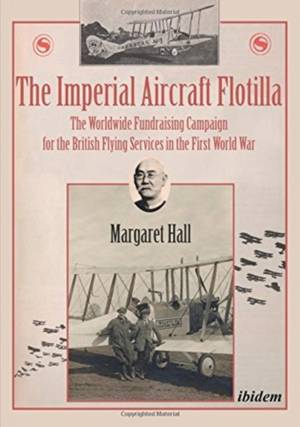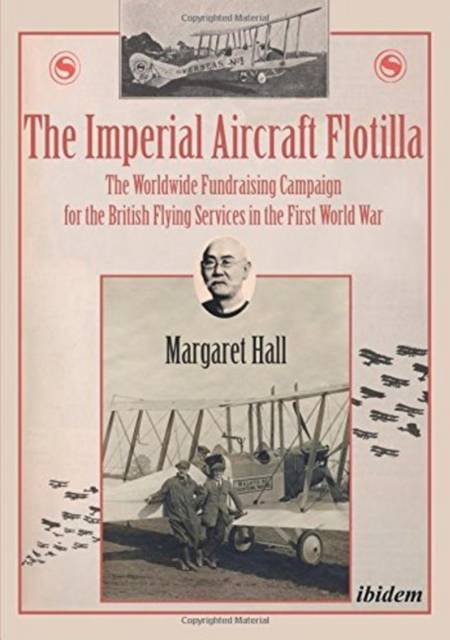
- Afhalen na 1 uur in een winkel met voorraad
- Gratis thuislevering in België vanaf € 30
- Ruim aanbod met 7 miljoen producten
- Afhalen na 1 uur in een winkel met voorraad
- Gratis thuislevering in België vanaf € 30
- Ruim aanbod met 7 miljoen producten
Zoeken
The Imperial Aircraft Flotilla
The Worldwide Fundraising Campaign for the British Flying Services in the First World War
Margaret Hall
Paperback | Engels
€ 48,45
+ 96 punten
Omschrijving
A great wave of fundraising 'patriotic' associations followed in the wake of Great Britain's declaration of war on Germany on 4 August 1914, at home but also right across the empire. The most successful public campaign of all was launched in London at the beginning of 1915. Known as the Imperial Aircraft Flotilla, the scheme aimed to attract contributions towards aircraft production costs from throughout the British Empire. Any country, locality, or community that provided sufficient funds for an entire 'aeroplane' could have it named after them. It was promised that when the machine crashed or was shot down, the name would be transferred to a new one of the same type.
Margaret Hall examines the Imperial Aircraft Flotilla as a facet of imperial history. She analyzes the fundraising efforts in Canada and Newfoundland; the Zanzibar Protectorate; Fiji, Mauritius, and the Caribbean; Hong Kong; the Malay states and Straits Settlements; West Africa, especially Gold Coast; Southern Rhodesia; Basutoland; Swaziland and the Union of South Africa; the Indian empire and Burma; (British subjects in) independent Abyssinia and Siam; in the Shanghai International Settlement, and the British community of Argentina; Australia; and New Zealand. This remarkable and detailed book discusses the propaganda and counter-subversion usages of the Imperial Aircraft Flotilla-and what the support for the imperial war effort reveals about contemporary national and regional identities and aspirations.
Margaret Hall examines the Imperial Aircraft Flotilla as a facet of imperial history. She analyzes the fundraising efforts in Canada and Newfoundland; the Zanzibar Protectorate; Fiji, Mauritius, and the Caribbean; Hong Kong; the Malay states and Straits Settlements; West Africa, especially Gold Coast; Southern Rhodesia; Basutoland; Swaziland and the Union of South Africa; the Indian empire and Burma; (British subjects in) independent Abyssinia and Siam; in the Shanghai International Settlement, and the British community of Argentina; Australia; and New Zealand. This remarkable and detailed book discusses the propaganda and counter-subversion usages of the Imperial Aircraft Flotilla-and what the support for the imperial war effort reveals about contemporary national and regional identities and aspirations.
Specificaties
Betrokkenen
- Auteur(s):
- Uitgeverij:
Inhoud
- Aantal bladzijden:
- 402
- Taal:
- Engels
Eigenschappen
- Productcode (EAN):
- 9783838210216
- Verschijningsdatum:
- 30/10/2017
- Uitvoering:
- Paperback
- Afmetingen:
- 153 mm x 209 mm
- Gewicht:
- 534 g

Alleen bij Standaard Boekhandel
+ 96 punten op je klantenkaart van Standaard Boekhandel
Beoordelingen
We publiceren alleen reviews die voldoen aan de voorwaarden voor reviews. Bekijk onze voorwaarden voor reviews.











